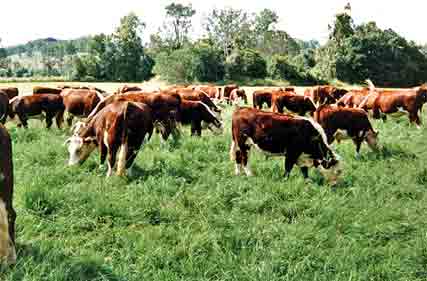 Rotational grazing has long been an area of debate, with land managers applying rotation periods anywhere between 20 and 200 days.
Rotational grazing has long been an area of debate, with land managers applying rotation periods anywhere between 20 and 200 days.
There are many variables in play and little research in the area, so it is easy to understand why confusion reigns.
NSW Department of Primary Industries (DPI) Research Agronomist, Dr Warwick Badgery has been conducting a trial at Orange investigating various grazing management strategies and their impact on sheep production, profitability and sustainability.
“One of the aims of the research was to provide information for producers who are planning on changing or have changed their management to an intensive rotational grazing system,” Dr Badgery said.
“With this latest information now available South East Local Land Services and DPI are inviting graziers to attend a seminar at Crookwell on how grazing management influences pastures and livestock performance.
“In analysing the initial findings, I have found that where producers are looking at pushing the system with higher stocking rates (13 DSE/ha) the results showed that a fast rotation with an average rest period of 60 days was the most profitable and sustainable.
“However, at lower stocking rates (7 DSE/ha) continuous grazing was able to deliver the same benefits in terms of production and sustainability.”
The seminar, which will run from 9:30 am to 12:30 pm on Monday, 8 May 2017, will feature talks from DPI and South East Local Land Services staff on topics including:
- Where does grazing management fit into the farming system?
- What we know and still need to know about managing sustainable grazing systems Worm management – what role does grazing management play?
- Breeding lamb – future challenges and opportunities
South East Local Land Services District Vet, Bill Johnson will be speaking about grazing management and its role in worm control.
“At most times of the year there are way more worms on pasture than in sheep,” Mr Johnson said.
“In some areas, development of drench resistance has meant graziers now rely on grazing management for worm control. Knowing what worms are present and how long they survive on pastures is the key.”
To register or for further information, please contact South East Local Land Services on (02) 4824 1900 or michelle.borland@lls.nsw.gov.au.
